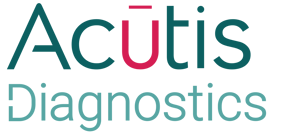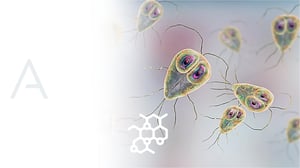
Gastrointestinal Pathogen Testing with Acutis Reveal™
Acutis Reveal™ gastrointestinal infection test (GIT) offers a new definition of certainty.
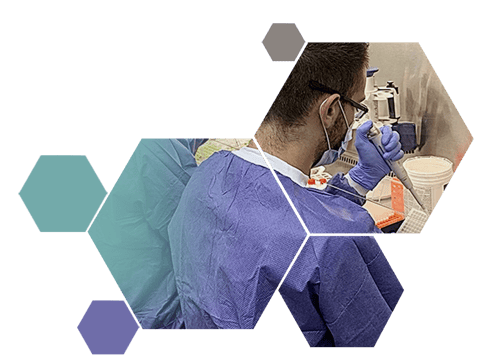 Reveal™ GIT is an FDA-approved test that can detect up to 14 major gastrointestinal pathogens.
Reveal™ GIT is an FDA-approved test that can detect up to 14 major gastrointestinal pathogens.
It can identify pathogens faster and with greater accuracy than any traditional methods or procedures.
This one-step, non-invasive stool test screens for infectious bacteria, viruses, and parasites in as few as 5 to 24 hours from the time the sample reaches our lab.
Benefits of Acutis Reveal™ GIT at a glance
Start testing with us today
The FDA-approved test can detect up to 14 major gastrointestinal pathogens:
Specimen Collection: Stool-
Adenovirus 40/41
-
Norovirus GI/GII
-
Rotavirus A
-
Campylobacter jejuni / coli / lari
-
Escherichia coli O157
-
Enterotoxigenic Escherichia coli (ETEC) LT/ ST
- Shiga-like toxin producing Escherichia coli (STEC) stx 1/ stx 2
- Shigella boydii / sonnei / flexneri / dysenteriae
- Vibrio cholerae toxin (ctx)
-
Cryptosporidium parvum / hominis
-
Entamoebe histolytica
-
Giardia lamblia
Molecular detection of infectious diseases eases and expedites the process
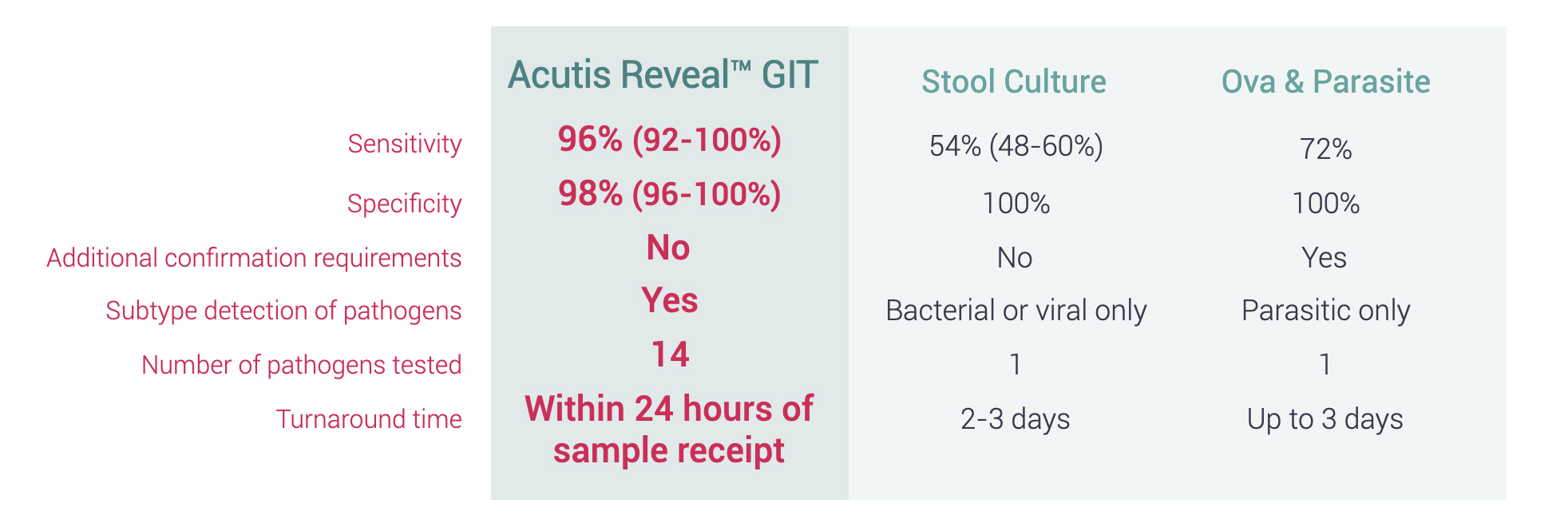
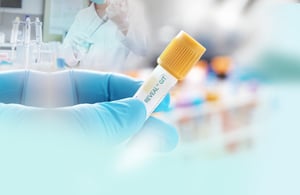
Clinical Insights
Acutis Reveal™ gastrointestinal pathogen test can identify pathogens faster and with greater accuracy than any traditional methods or procedures.
Highly accurate, the test detects and identifies >90% of infectious agents, providing the certainty clinicians require to provide the most efficient and efficacious patient care, in the shortest amount of time. Gastroenteritis is a growing problem. It too often frustrates the attending physician, always punishes the patient and frequently puts others at risk.
Acutis Reveal™ offers a novel, proven, state-of-the-art technique that diagnoses gastroenteritis while identifying specific viral, bacterial, or parasitic pathogens.
More about this Service Reveal™ GIT determines the therapeutic course of action
The test quickly determines the specific bacteria, viral and parasitic pathogens causing the illness. With this knowledge, a medical provider can then take a more specific course of action.
For example, if the bacterial toxin is identified as E. coli (STEC) or Shiga-like Toxin, the use of antibiotics may be appropriate. However, if it proves to be a case of Clostridium difficile toxins A and B, swift action may be called for due to its contagious nature.
For certain other patients, such as those with IBD, the ability to rule out infections is especially useful. In recent times, these particular pathogens have become notorious as they become better known to the general public.
Our test goes some way to ascertain a diagnosis while calming the patients’ anxiety.
